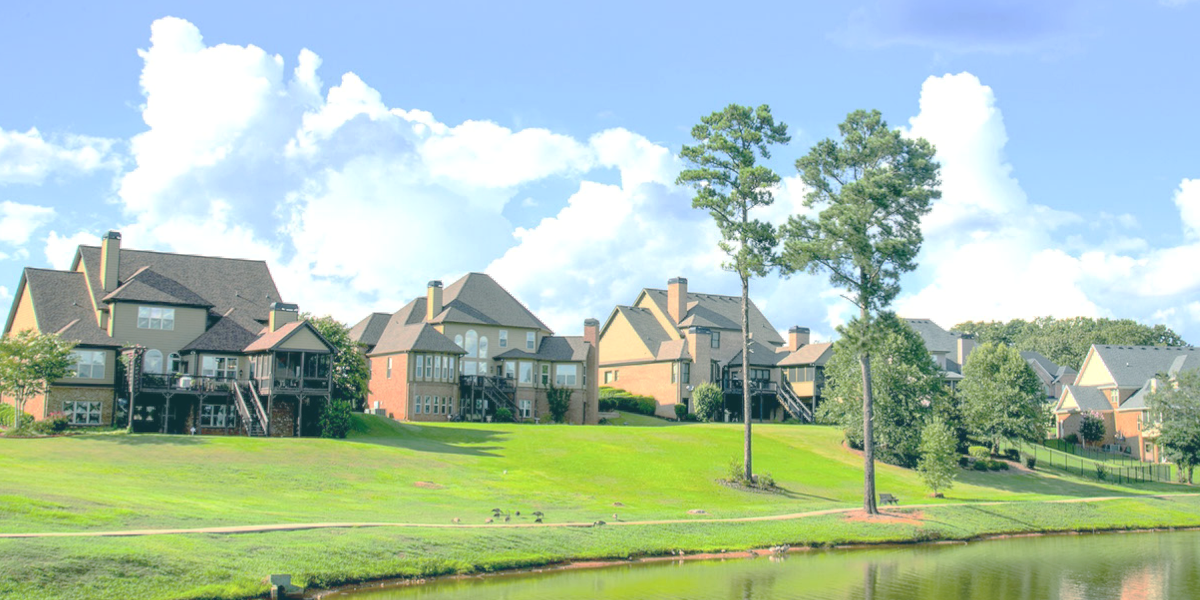Celebrating
...

Whether you live in the suburbs or the city on the West Coast or East Coast or North or South here in the United States, you will encounter a home with an HOA. The developer creates the HOA CCR's to maintain a consistent look and feel throughout the neighborhood as the community. When you purchase a home with an HOA, the buyer agrees to abide by the community HOA rules and pay dues.

Today HOA's are commonly used in condominiums, townhomes, and planned single communities. Condominiums or condos are privately owned units within a building where dues give access and maintain the landscaping, swimming pool, fitness area, clubhouse, pest control, and trash removal. Townhouses are two or more floor units that share up to two walls with their neighbors and include similar maintenance requirements to a condominium. Planned single-family communities are detached single-family homes where fees cover the cost of community spaces and may consist of landscaping services for uniformity to lawn care.
When the developer creates one of these types of planned properties, they develop a Home Owner Association organization for the community; once a specific number of homes are completed and sold, the developer will then give the HOA organization to the homeowners. The homeowners will then govern the HOA and its bylaws. They will also pay monthly or annual dues that the community will use to maintain, improve, and increase its value.
Typically, the HOA's board consists of homeowners within the community who usually meet monthly to discuss community matters. Every year the homeowners' vote to choose who will form HOA members for the following positions president, treasurer, and secretary. These members will hire a property manager, a lawyer, and other vendors to maintain the community. The property manager assists the HOA's board with day-to-day matters within the community.
All homeowners within the community will pay a fee either monthly or annually to the community's HOA organization. These fees are to maintain and update the community's amenities and improvements. The HOA is an additional expense not included in the mortgage, and the future homeowner should be aware that HOA fees can increase over time due to inflation and operating costs. However, many states have established an additional set of laws to protect homeowners from drastic fee increases.
When living in a home with HOA, you cannot simply decide not to pay your fee because this could result in a lawsuit, a lien on the property, or foreclosure. Suppose you are interested in living in a community with HOA. In that case, you can request that the seller provide you with the recent financial statement of the HOA so that you will have a clear understanding of the community's economic stance.

The CC&R's (Covenants, Conditions & Restrictions) establish the community standards and inform you about holiday decoration standards or parking for guest vehicles. When a homeowner does not follow the rules specified in the CC&Rs, this can result in fines, mediation, and or lawsuits. When looking to acquire a property with HOA, it is entirely appropriate to ask the listing agent for a current copy of the property's CC&R. This will be a material fact in your determining if you are comfortable living in that community or if you should look elsewhere.
Almost all HOA's will require that individual homeowners maintain a certain level of maintenance and conform to specific standards regarding curb appeal, home color, and improvements. These requirements usually pertain to lawns, driveways, fencing, paint color, and overall home maintenance to have a cohesive look and feel throughout the neighborhood. Many HOA's enforce rules regarding the type of animals and breeds allowed in the community. They will also establish rules regarding pet cleanup, leash laws, air, and noise level.
Homeowners who wish to rent their property will need to research the CC&R's to determine if they can rent their property. Homeowners must let the renters know that they must comply with the HOA rules; they should communicate with the landlord if they have any questions or concerns. Also, homeowners should provide a copy of the CC&R's, so their renters know the neighborhood rules.
After deciding on a home with an HOA, take a moment to obtain from the listing a few details to help make the best decision for your lifestyle. Asking the homeowner for a copy of the current HOA will provide you with vital information about the community's HOA. If you have additional questions about Homeowner Associations, please contact me for assistance.
